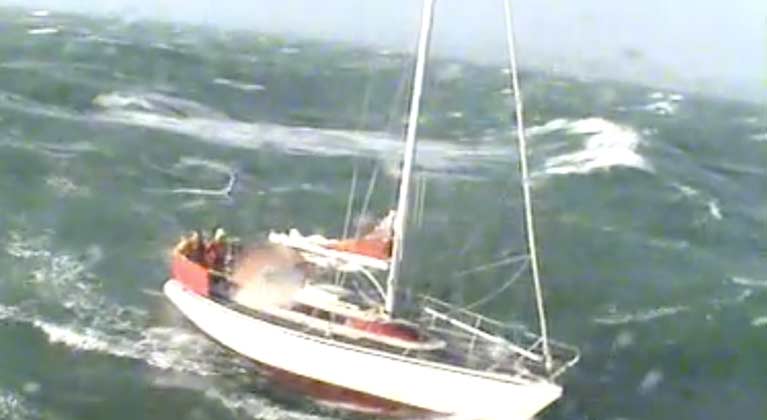A former hyper-active hurricane, only very recently re-classed as a severe tropical storm, hits southwest Ireland at dawn from south of southwest on a mid-October Monday morning writes W M Nixon. It spends the entire day tracking destructively across country, until it finally departs from our island to the northeast.
It sounds like the demented scenario for a majestic blockbuster movie. Such a mega-film would use special effects to get the full impact of the various disasters which arise as this Enemy of the People – personalized by being called Storm Ophelia - does her worst to provide extreme conditions in which people (inevitably a cast of thousands) will dramatically respond in their many and various ways, some truly selfless, others anything but.
It would definitely be a big budget production. We can know that for certain. For on this post-storm morning, with weather of surreal and gentle beauty after Ophelia has gone on her way, the cost of clearing, repair and re-build will surely run to many millions when all is finally put right, which will certainly be months rather than days or weeks.
Yet how have we as a people and an island nation emerged from it? The feeling is encouraging. There seems to be a heightened sense of ourselves in a fairly benign light, an awareness that when push comes to shove, our infrastructure and emergency services can rise to the challenge, provided all the people of Ireland quietly help them by not making unreasonable demands for their assistance.
For sure, three deaths is three deaths too many, particularly as in two cases it involved the victims helping others. But in the wholesale felling of trees, the destruction of property with the particularly horrible risk of flying debris, and in the hour after hour of the flooding of rivers and the battering of coasts and harbour with boats at risk everywhere, people took expert advice and generally kept themselves as much as possible out of harm’s way.
And this of course is where we realize how much things have moved on from our previous experiences of extreme weather conditions. Meteorology has advanced so much with short-term forecasts achieving such precision that those who had business out of the house which simply had to be dealt with knew to within half an hour when they absolutely had to be back safely indoors.
So Met Eireann now has even more respect as a National Treasure. As for the comforting presence of a sensible stream of practical advice from the National Emergency Co-ordination Group (NECG), that was exactly what was needed to encourage everyone to be sensible and avoid unnecessary risks, while its Chairman Sean Hogan has become the nation’s poster boy for “Keeping Calm in the Midst of Storms”.
With the main drama being played outdoors, inevitably there were those who had to take on risky repair and remedial work in exposed places at the scene of damage, and the rest of us were lost in admiration for the Electricity Service teams. Most of us know little enough about how electricity works in the first place, yet these guys not only has to know it in life and death situations, but they had to be skilled foresters and tree surgeons as well as they went about their highly dangerous tasks.
 Conditions were extremely challenging with force nine winds with a six metre sea swell when Rosslare RNLI went to rescue this yacht in the Irish Sea
Conditions were extremely challenging with force nine winds with a six metre sea swell when Rosslare RNLI went to rescue this yacht in the Irish Sea
Finally, there’s the episode of that rescue by the Rosslare Lifeboat of a yacht in distress at the height of the storm. Some day we’ll learn just how the yacht was there at all, for heaven knows Ophelia had been well signaled for days in advance. But oddly enough, that’s not too important this morning, What is important is that Cox’n Eamonn O’Rourke and his crew – all volunteers – were assembled within minutes, they carried out a text-book rescue with clinical precision, and the country could return to keeping itself safe for the day, as we’d been advised to.
Because although there’d been some grumblings that the warnings beforehand were surely tending towards exaggeration, they weren’t. The three tragic deaths were three deaths too many, and infinitely sad. But yesterday could have been a continuing litany of personal tragedies if people had deluded themselves that they could have got away with cheating such a prodigious force of nature.
So we emerge from our encounter with Storm Ophelia with a heightened sense of ourselves as a mature nation. Ireland is unique – a medium-sized island on the leeward side of one of the roughest oceans in the world. Our population is such that we have to stretch resources to provide the services and expertise which countries with larger populations can take in their stride.
Yet when Storm Ophelia tested those services, Ireland was not found wanting. And we Irish conducted ourselves like sensible adults who will accept a certain amount of discipline when it is presented to us in a competent and reasonable manner.
On this, the day after the storm, we can feel quietly proud of being Irish.































































